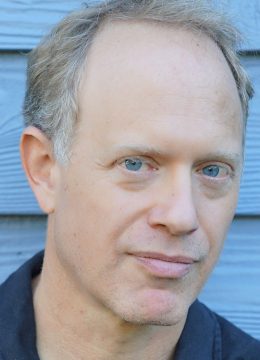
Tuesday November 26
7:00 at Blue Hill Public Library
5 Parker Point Road
Blue Hill, Maine 04614
On the morning of November 3, 1979, activists, mill workers, and supportive local citizens were gathering in Greensboro, North Carolina at the black public housing development, Morningside Homes. Four television news crews set up across the street to film the start of the “Death to the Klan” march. Shortly before 11:30 am, a nine-car caravan rolled toward the crowd. “Here comes the Klan!” someone yelled. Then the shooting started.
88 seconds later, five members of a multiracial, communist group lay dead on the ground: Two were Jewish, one black, one Cuban, and one a WASP graduate of Harvard. All were highly educated and deeply committed to anti-racism and economic equality. Ten others were injured, including the group’s leader, long-time Greensboro civil rights activist, Nelson Johnson.
Greensboro’s mayor rushed to a local television station to announce that this terrible incident of American political violence was just an unfortunate accident. The real victim, he suggested, was Greensboro, home to Quakers, an original depot of the Underground Railroad, and some of the largest textile mills in the world. No one—not even the Klan and American Nazi shooters—would ever be held criminally responsible for the five murders.
In Morningside, Aran Shetterly delivers an intimate account of an overlooked chapter in American history, expertly reconstructed from legal documents, FBI and police files, newspaper reports, and interviews with dozens of people connected to the tragedy, including activists, journalists, lawyers, FBI agents, and Greensboro police officers. While taking us through Reverend Nelson Johnson and his wife Joyce Johnson’s long civil rights journey from the 1960s to the present and their search for the tools and methods to achieve racial equality in Greensboro, he investigates the mystery at the heart of the book: Could the police and federal agents have prevented the deadly violence on November 3 and, if they could have, why didn’t they?
At a time of surging racial violence around the country, Morningside offers hope in the Johnsons’ tireless fight for justice and their refusal to give up on America’s ideals. As the 45th anniversary of the Greensboro Massacre approaches on November 3, 2024, this book will resonate with anyone who lives in a city where painful, unresolved histories of race and class conflict, police corruption, and interactions with a biased legal system keep communities from safe and promising futures.

Aran Shetterly’s first book, The Americano: Fighting with Castro for Cuba’s Freedom, received a starred review from Publishers Weekly and praise from Carlos Eire, the National Book Award winner for Waiting for Snow in Havana. From 2005 to 2009, Shetterly founded, edited, and wrote for Inside Mexico, the most widely distributed English-language periodical in Mexico. Shetterly grew up in rural Maine, studied English Literature and Spanish Language and Culture at Harvard College, and earned an MA in American and New England Studies from the University of Southern Maine. He has worked in media, publishing, and as a writing instructor, and has collaborated with his father’s arts and education organization, Americans Who Tell the Truth, since 2003. After living in Costa Rica, Cuba, and Mexico, Shetterly now resides in Charlottesville, Virginia with his wife, Margot Lee Shetterly, author of the New York Times #1 bestseller, Hidden Figures.